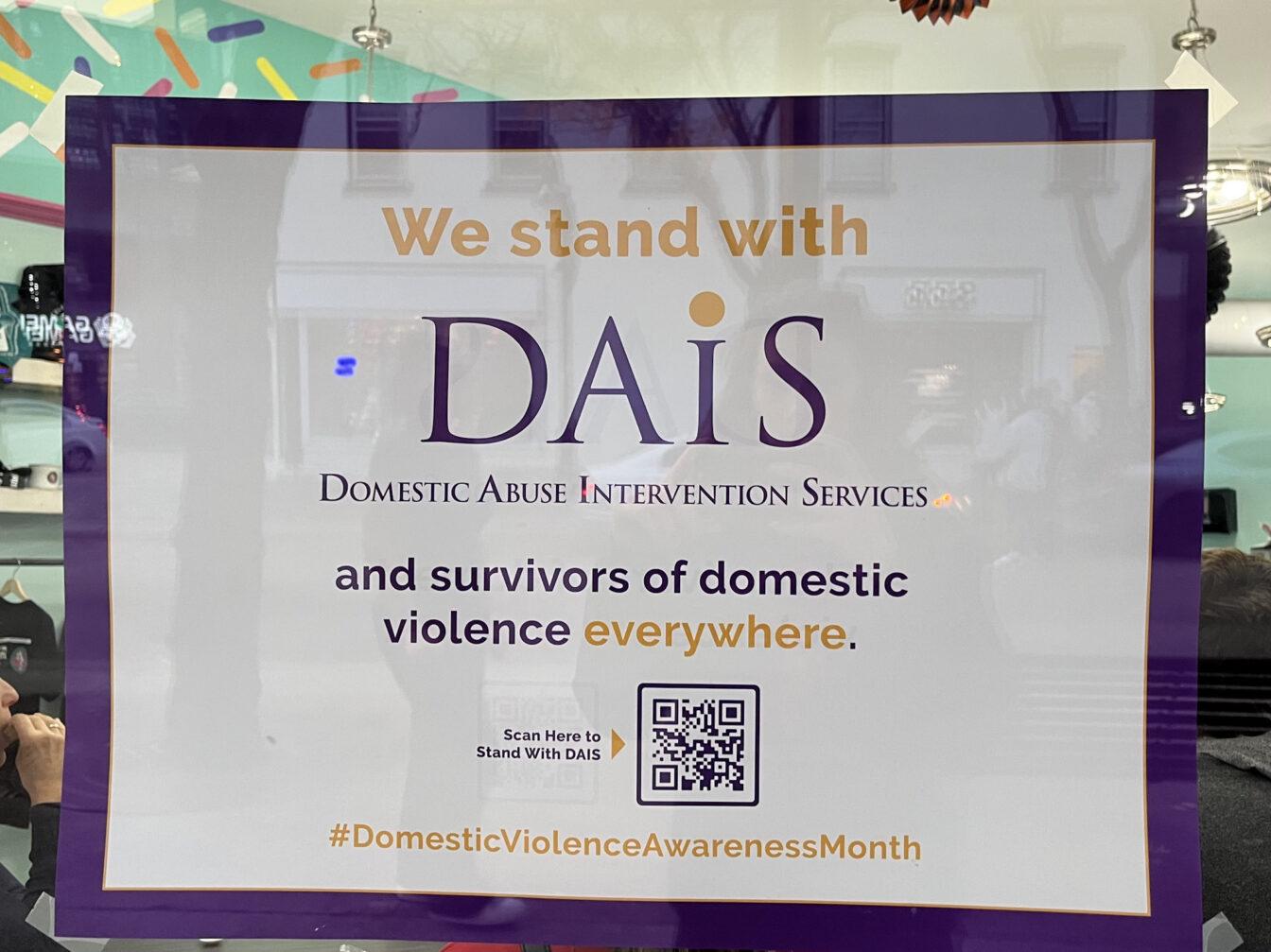Note: This article uses both “Intimate Partner Violence” and “Domestic Violence” terminology, per the mixed use in various interviews and sourcing. Please note there has been a recent push to use “Intimate Partner Violence” as it is more inclusive.
Madison-area businesses and organizations helped spread awareness about intimate partner violence during the month of October — which is nationally recognized as Domestic Violence Awareness Month.
Sept. 28, Gov. Tony Evers announced an additional $2.7 million investment in domestic violence programs and emergency and homelessness shelter services, according to a press release from the office of the governor.
This investment comes at a time when reported rates of domestic violence continue to rise, according to Domestic Abuse Intervention Services prevention outreach coordinator Zoë Heitzinger.
DAIS is the only domestic violence shelter in Dane County. The staff focuses on supporting survivors of intimate partner violence through various crisis intervention and community education programs — including helplines, legal advocacy, support groups and more, according to the website.
Tracking rates of domestic violence can be challenging because some victims are hesitant to report the violence they experience, according to Heitzinger.
“Domestic violence thrives in silence,” Heitzinger said. “There are so many barriers that survivors and victims face for coming forward — to report or to disclose what they’re experiencing.”
DAIS does not track official rates of domestic violence in the Dane County area — data is managed for the state of Wisconsin, according to Heitzinger.
But on the DAIS 24-hour helpline alone, there have been over 7,000 total calls in the past two years, according to Heitzinger.
“We know that it’s happening in our community, and we know that those rates are still high,” Heitzinger said. “The number of calls has been high every year since the pandemic started.”
A 2020 report by End Abuse Wisconsin found that 68 individuals died due to domestic violence in 2020.
Nationally, one in four women and one in 10 men have experienced and reported at least one impact of violence by an intimate partner — this includes sexual violence, physical violence and stalking, according to CDC data.
To raise awareness for survivors of intimate partner violence during the month of October, DAIS distributed signs to be posted across Madison.
“We have messaging around our community,” Heitzinger said. “It’s so important that we keep this united front on letting the community know that we’re here. We’re open, we’re available, we’re accessible.”
DAIS partnered with Delta Beer Lab in brewing a beer called “One in Four” to match the CDC statistic of women who have experienced violence from an intimate partner. The beer is available at a variety of pubs and bars in and around Madison for the month of October, according to Heitzinger.
In addition to increased messaging, DAIS has hosted community programming events to raise awareness and funding for survivors of intimate partner violence.
Raising awareness around intimate partner violence reaches beyond the month of October, Heitzinger said. Sept. 29, DAIS held a press conference, launching a 24/7 anonymous text line that can be used by people who are experiencing violence but in situations where they cannot talk on the phone, according to Heitzinger.
Heitzinger works to provide the Madison and Dane County communities with the necessary information to screen for and address intimate partner violence. She also works with middle and high school male-identifying youth in a year-long program called Men Encouraging Nonviolent Strengths.
“We talk about masculinity, healthy masculinity, toxic masculinity, what it means to grow up as a man or holding a male identity in 2022 and beyond,” Heitzinger said. “The overarching goal of the program is to uplift these young men in our school communities as allies in ending gender-based violence and to provide a safe and supportive space for young men.”
DAIS also provides services for survivors of intimate partner violence — including legal advocacy, children’s programming, parent support groups, men’s support groups and more, Heitzinger said.
On the University of Wisconsin campus, survivor services are available through the law school, according to the Director of the Restraining Order and Survivor Advocacy Clinic Ryan Poe-Gavlinski.
The ROSA Clinic is staffed by Poe-Gavlinski and law students — with the goal of assisting survivors of sexual assault and intimate partner violence with getting restraining orders in civil court.
The clinic is open to everyone, but prioritizes students from the UW campus, Poe-Gavlinski said.
Awareness is the most important tool in fighting intimate partner violence, according to Poe-Gavlinski.
“[Intimate partner violence] doesn’t discriminate between race, gender, the type of relationship you’re having, economic status — it happens with everybody,” Poe-Gavlinski said. “Awareness is just really important to help people know where to turn and how to help others.”
This violence can occur in many forms and at many different levels. It is important that intimate partner violence is discussed — as it is through discussion that awareness increases, Poe-Gavlinski said.
DAIS Text Helpline: (608) 420-4638
National Domestic Violence Hotline: 800-799-7233, https://www.thehotline.org/



